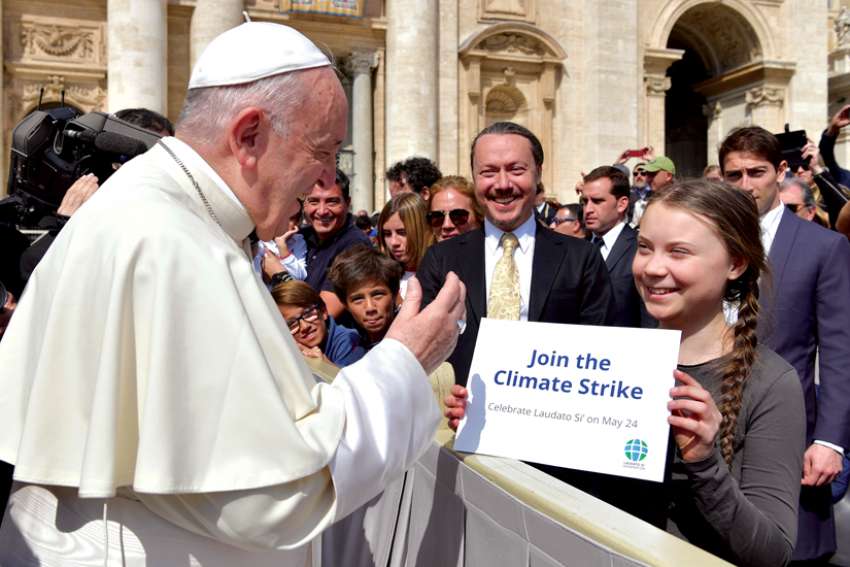That one child became millions and that one Friday became every Friday — the Fridays for Future movement — in approximately 150 countries.
Greta Thunberg’s lone vigil has sparked a global firestorm of children and youth crying out to adults to take action against climate change. Children are stepping up to the plate. In Canada, 15-year-old Autumn Peltier from Wiikwemkoong First Nation in northern Ontario educates United Nations and other audiences on the importance of clean water.
Nov. 20 was National Child Day, which celebrates the United Nations Convention on the Rights of the Child and its predecessor, the 1959 Declaration of the Rights of the Child.
“By ratifying the United Nations Convention on the Rights of the Child in 1991, Canada made a commitment to ensure that all children are treated with dignity and respect,” says a federal government website. “This commitment includes the opportunity for children to have a voice, be protected from harm and be provided with their basic needs and every opportunity to reach their full potential.”
Throughout the years, our understandings of what constitutes “harm” to children, what their “basic needs” are and the way children have expressed their “voice” have evolved. For instance, their basic need for, and right to, a clean, healthy environment has always been a given — until now.
This past year, the upsurge of children and youth taking to the streets in Canada and around the world to protest harms arising from environmental degradation is unique and significant. Such a rapid proliferation of protests can’t be explained by what critics say is the result of children being coached or egged on by adults who have a particular political agenda.
By her simple action, Thunberg tapped into a reservoir of what is increasingly being called “eco-anxiety.” According to a recent CTV News report: “Teachers say an increasing number of students are showing signs of compromised mental health, triggered by the state of the climate and a sense of hopelessness for the future.”
There is a very real basis for this eco-anxiety. An Aug. 14, 2019 report by the Canadian Paediatric Society found that children especially suffer from climate-related changes such as rising temperatures, extreme weather events, increasing water and air pollution and infection risks from insects, ticks and rodents.
“Children can be disproportionately affected by these and other climate-related changes because they metabolize more water, air and food per kilogram of body weight than adults,” says the report.
“Their rapid growth and developmental, physiologically dynamic systems, and risk exposure over a longer life course combine to increase vulnerability to environmental hazards.”
Although many adults have been supportive of Thunberg, Autumn and others, there is a strong current of adults who discount these voices and, in some cases, even attack through social media children who are speaking out. Witness the shameful mocking of Thunberg by U.S. President Donald Trump.
A common refrain is that it’s easy for children to blame adults for environmental degradation. Children just don’t understand the complexities of the world; they don’t have concrete solutions to the problems, according to the critics.
But that’s the beauty of children. They say it like it is. They challenge our conscience.
Jesus was very clear about how we are to view, and treat, children: as models of humility (Matthew 18:2-4), as a way of welcoming Him (Mark 9:36-37), as owners of Heaven (Mark 10:14). He warns us not to despise children (Matthew 18:10) and not to rebuke or hinder children when they seek Him (Mark 10:14). It was children who acknowledged Jesus in the temple, much to the chagrin of the Pharisees (Matthew 21:15-16).
We need to listen to our children and treat them with respect and dignity. It’s up to us adults to take the actions that will ensure that today’s children have a healthy, stable future, which will enable them to fulfil their full potential.
(Majtenyi is a public relations officer who specializes in research at an Ontario university.)


